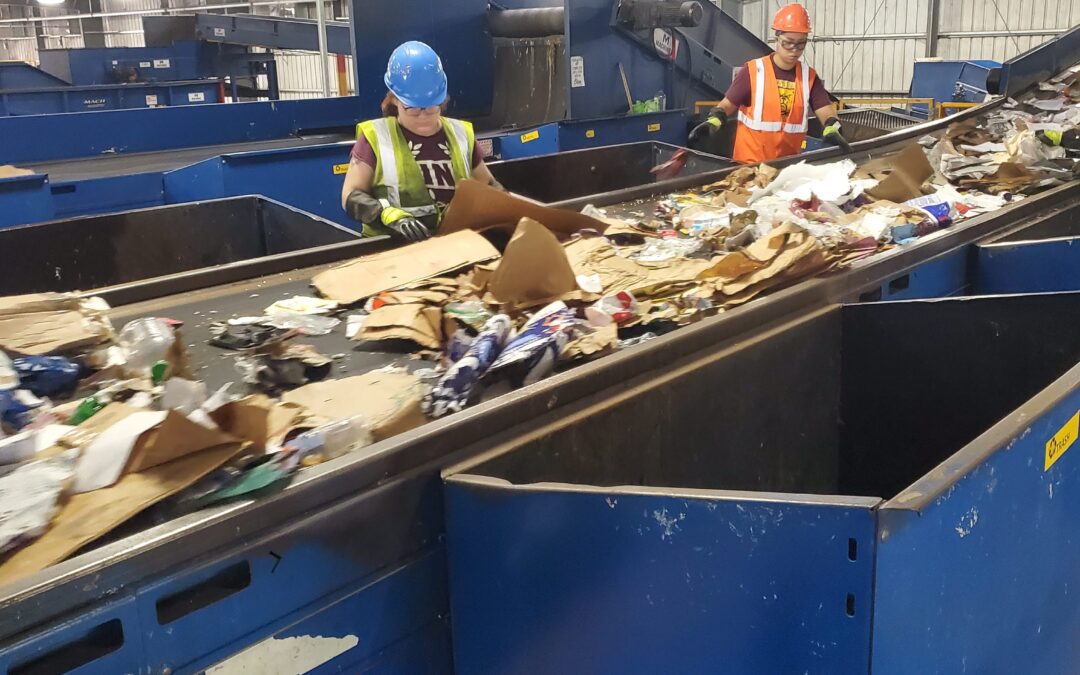In the era of environmental consciousness, the need for efficient waste management solutions has never been more urgent. Among the various tools and technologies available, recycling conveyors stand out as a fundamental cog in the wheel of sustainable waste management. These conveyor systems not only streamline the recycling process but also contribute significantly to reducing environmental impact. Let’s delve into the world of recycling conveyors and explore how they are revolutionizing waste management.
Understanding Recycling Conveyors
At its core, a recycling conveyor is a mechanical apparatus designed to transport recyclable materials from one point to another within a recycling facility. These conveyors come in various shapes, sizes, and configurations, tailored to the specific needs of different recycling operations. Whether it’s sorting, shredding, or baling, recycling conveyors play a pivotal role in every stage of the recycling process.
Streamlining Sorting and Segregation
One of the primary functions of recycling conveyors is to facilitate the sorting and segregation of recyclable materials. As materials move along the conveyor belt, they can be efficiently sorted based on predetermined criteria such as material type, size, and weight. Advanced sensors and sorting technologies further enhance this process by automatically diverting materials into designated bins or chutes.
Enhancing Efficiency and Productivity
The implementation of recycling conveyors results in a significant boost in efficiency and productivity within recycling facilities. By automating material handling tasks, these conveyors minimize manual labor requirements and reduce the likelihood of errors or inconsistencies in sorting and processing. This increased efficiency translates to higher throughput rates and faster turnaround times, ultimately maximizing the facility’s overall productivity.
Reducing Environmental Impact
Perhaps the most significant contribution of recycling conveyors lies in their ability to reduce environmental impact. By streamlining the recycling process and minimizing waste, these conveyors help conserve natural resources, reduce energy consumption, and mitigate pollution. Additionally, efficient recycling practices facilitated by conveyors contribute to the reduction of greenhouse gas emissions, thus combatting climate change on a global scale.
Promoting Circular Economy
Recycling conveyors play a crucial role in promoting the transition towards a circular economy—a system aimed at minimizing waste and maximizing resource efficiency. By facilitating the efficient recovery and reuse of materials, these conveyors enable the continuous circulation of resources within the economy, thereby reducing the reliance on finite raw materials and mitigating the environmental burden of waste disposal.
Embracing Innovation for a Sustainable Future
As the demand for sustainable waste management solutions continues to grow, recycling conveyors are evolving to meet the challenges of tomorrow. From the integration of artificial intelligence and machine learning algorithms for advanced sorting capabilities to the utilization of renewable energy sources to power conveyor systems, innovation is driving the continuous improvement of recycling conveyors, paving the way towards a more sustainable future.
Conclusion
In the quest for a greener, more sustainable future, recycling conveyors emerge as indispensable tools in the arsenal of waste management solutions. By streamlining the recycling process, enhancing efficiency, and reducing environmental impact, these conveyors play a pivotal role in advancing the principles of sustainability and promoting the transition towards a circular economy. As technology continues to evolve and innovations unfold, recycling conveyors will remain at the forefront of the global effort to build a cleaner, more sustainable world.

